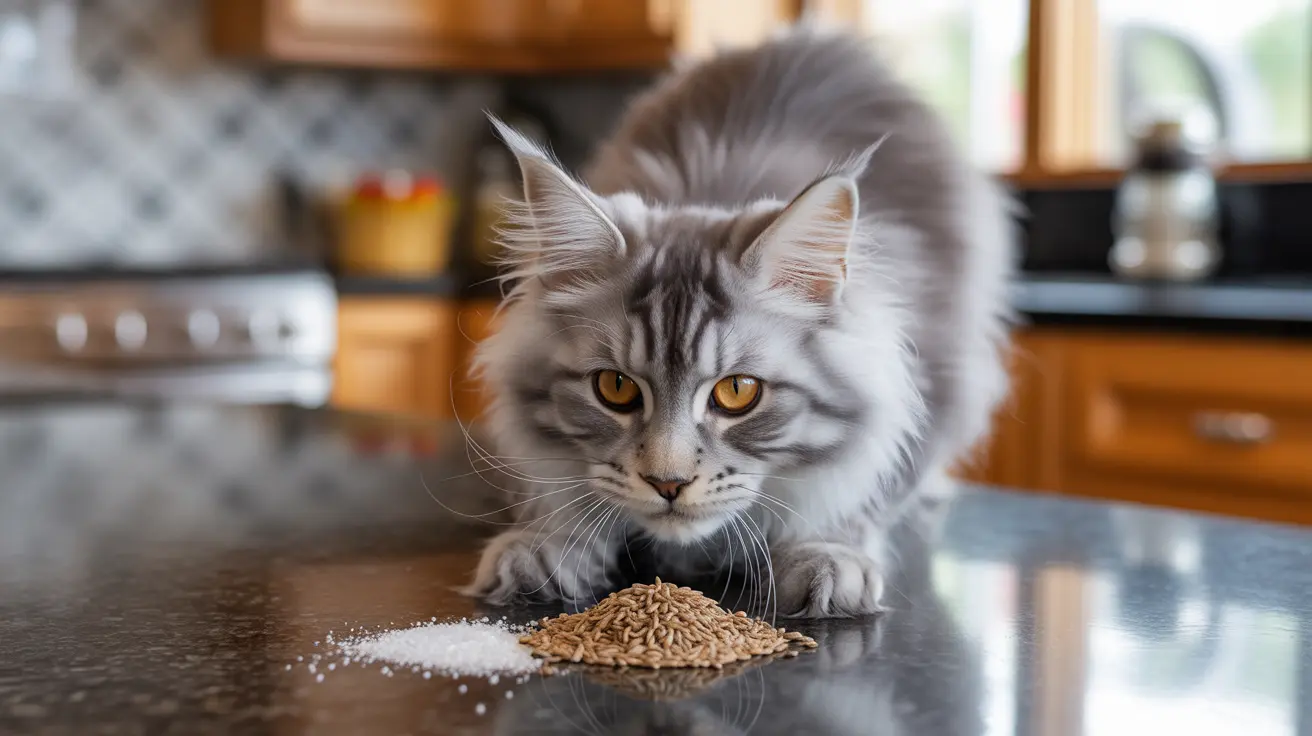Understanding Cumin and Cats: The Basics
If you're a cat parent who loves cooking with spices, you may have wondered "can cats have cumin?" While cumin is not toxic to cats, it's important to understand the full picture before sharing this common kitchen spice with your feline friend.
Cumin (Cuminum cyminum) is a popular spice used in many cuisines worldwide, known for its distinctive flavor and aroma. For cats, however, the relationship with this spice is quite different from humans, as they are obligate carnivores with specific dietary needs.
Safety and Potential Risks
The good news is that cumin is not considered toxic to cats according to veterinary experts and animal poison control centers. However, this doesn't mean it should become a regular part of your cat's diet.
While small accidental exposures (like your cat licking up a tiny bit of spilled cumin) typically won't cause serious problems, larger amounts can lead to:
- Digestive upset
- Mild stomach discomfort
- Vomiting
- Diarrhea
Why Cats Don't Need Cumin
Cats are specialized carnivores whose bodies are designed to process meat-based proteins. Their digestive systems are not equipped to handle or benefit from many plant-based substances, including spices like cumin.
Consider these important points:
- Cats have significantly fewer taste buds than humans
- They lack the ability to taste sweetness
- Their digestive systems are specialized for processing meat
- There are no proven health benefits of cumin for cats
The Black Cumin Oil Warning
It's crucial to distinguish between regular cumin and black cumin oil (Nigella sativa). While regular cumin is generally safe in small amounts, black cumin oil can be toxic to cats due to its concentrated compounds and essential oils.
Never give your cat black cumin oil or any products containing it, as this can lead to serious health complications including liver damage and neurological issues.
Best Practices for Cat Owners
If your cat has encountered cumin, here are the recommended guidelines to follow:
- Monitor your cat for any unusual behavior or symptoms
- Keep spices stored securely away from curious paws
- Stick to veterinarian-approved cat foods and treats
- If your cat shows signs of distress after consuming cumin, contact your vet
Frequently Asked Questions
Is cumin safe for cats, and what happens if my cat accidentally eats it?
Cumin is not toxic to cats, and small accidental ingestion typically won't cause serious problems. However, larger amounts may cause mild digestive upset, including vomiting or diarrhea.
Can giving cumin to my cat help with digestion or provide any health benefits?
No, there are no proven health benefits of cumin for cats. As obligate carnivores, cats don't process plant-based substances the same way humans do, and they don't need spices for digestive health.
What are the symptoms if my cat has a bad reaction to cumin?
Signs of a negative reaction may include vomiting, diarrhea, decreased appetite, or stomach discomfort. If these symptoms persist or are severe, contact your veterinarian.
Should I avoid black cumin or black seed oil for my cat if regular cumin is safe?
Yes, absolutely avoid black cumin oil for cats. While regular cumin is generally safe in tiny amounts, black cumin oil can be toxic and cause serious health problems including liver damage.
Is it okay to occasionally share foods spiced with cumin with my cat, and how much is too much?
It's best not to intentionally feed your cat foods containing cumin. While small accidental exposures aren't typically dangerous, there's no benefit to including cumin in your cat's diet, and larger amounts could cause digestive issues.
Conclusion
While cumin isn't toxic to cats, it's best to keep this spice for human consumption only. Focus on providing your cat with a balanced, species-appropriate diet consisting of high-quality cat food recommended by your veterinarian. If your cat does consume cumin and shows any concerning symptoms, don't hesitate to contact your vet for professional guidance.






